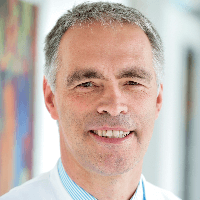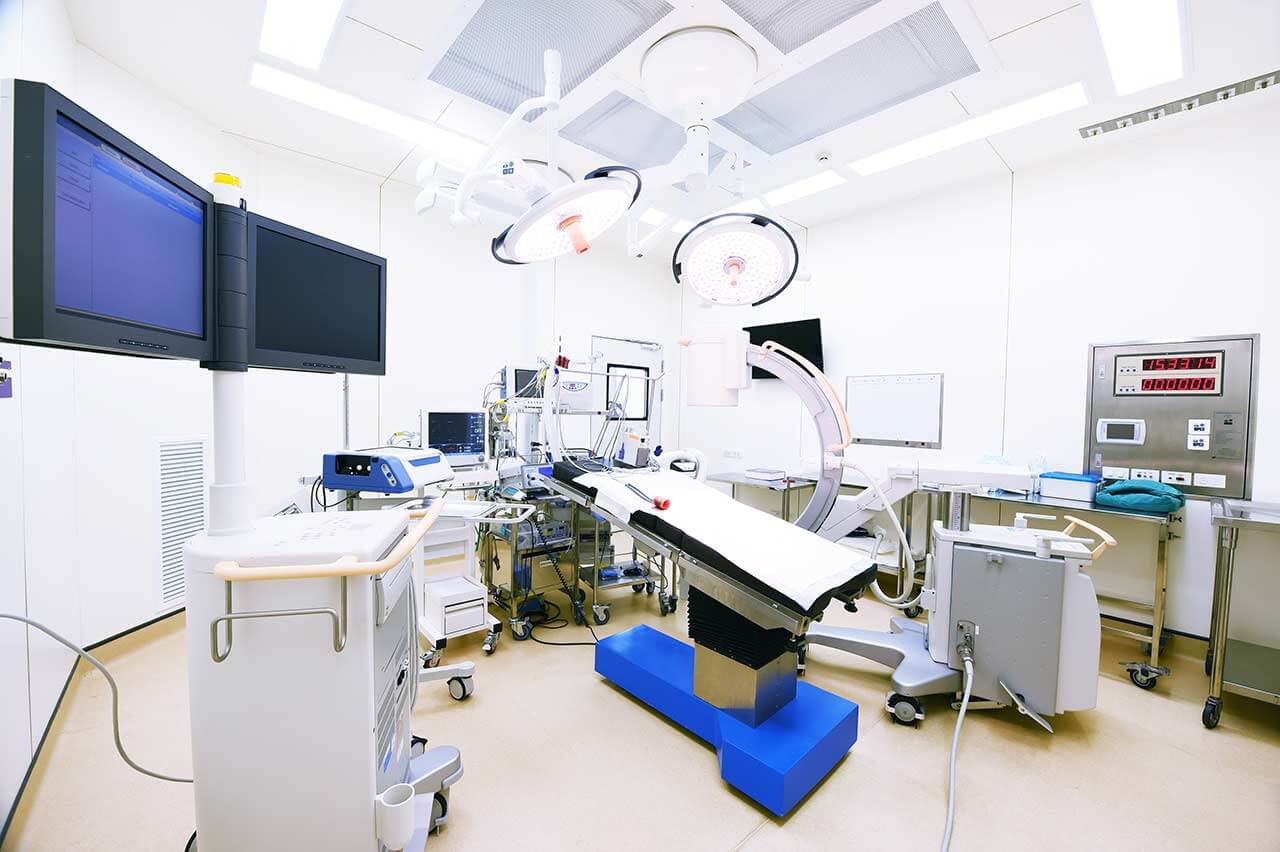
The program includes:
- Initial presentation in the clinic
- clinical history taking
- physical examination
- cardiological examination
- laboratory tests:
- complete blood count
- general urine analysis
- biochemical analysis of blood
- TSH-basal, fT3, fT4
- indicators of inflammation
- indicators blood coagulation
- Cardiological examination
- Measurement of arterial blood pressure, EKG
- Cardiac monitoring (24h)
- ECHO
- Transesophageal echocardiography (TEE)
- nursing services
- full hospital accommodation
- explanation of individual treatment plan
Required documents
- Medical records
- Echocardiography (if available)
Service
You may also book:
 BookingHealth Price from:
BookingHealth Price from:
About the department
The Department of Pediatric Cardiology at the University Hospital Bonn offers the full range of diagnostics and conservative treatment of newborns, young children, adolescents and adults with congenital and acquired heart defects. In collaboration with the Department of Obstetrics and Perinatal Medicine, the children with heart diseases can be treated in the womb. In addition, the department specializes in the treatment of extracardiac diseases. The department participates in the project "Quality Assurance in Pediatric Cardiology/Pediatric Cardiac Surgery" of the German Society of Pediatric Cardiology and the German Society for Thoracic and Cardiovascular Surgery, which guarantees the highly effective treatment of heart diseases at the highest level of modern medicine. The department is headed by Prof. Dr. med. Johannes Breuer.
The department carries out all modern diagnostic examinations in order to identify cardiac problems in children, in particular, all methods of ultrasound examinations, for example, 2D imaging, M-mode ultrasound, Doppler ultrasonography, continuous-wave Doppler ultrasound and color Doppler ultrasonography. In some cases, transesophageal echocardiography is also performed in young patients. In addition, the department's doctors perform 3D echocardiography, which allows to examine all parts of the heart for a few seconds and receive 3D images.
The department has a well-equipped Cardiac Catheterization Laboratory, which serves for the provision of special procedures to treat heart pathologies or prepare for a surgical intervention. Also, in cooperation with the Departments of Pediatric Cardiac Surgery and Surgery, there are performed hybrid operations (the combination of a catheterization procedure and open surgery).
The department’s clinical focuses include:
- Diagnostics and treatment of heart diseases in children of all age groups (including perinatal therapy and therapy of congenital heart defects in adults)
- Medical care for premature babies and newborns with abnormal development of the heart and other organs
- Comprehensive surgical treatment of heart diseases in patients of all age groups
- Catheter interventions and hybrid cardiac surgery
- Balloon dilatation in stenosis of aortic valves and blood vessels
- Stent implantation in vascular stenosis
- Closure of atrial and interventricular septal defects using special probes
- Closure of vascular defects of the small and large circulation using special spirals
- Hybrid interventions (the combination of a catheter procedure with open surgery)
- Catheter treatment of arrhythmias
- Diagnostics and treatment of pulmonary hypertension
- 3D echocardiography
- Fetal echocardiography
- Special exercise program for children with heart diseases
- Other medical services
Curriculum vitae
- 1979 - 1986 Study of Medicine at the University of Duesseldorf, Germany; completed studies with a medical thesis about cardiovascular effects of serotonin.
- 1986 - 1987 Clinical and scientific work at the University of California in San Diego, USA, during a scholarship of the Rotary Foundation.
- 1987 - 1997 Specialization in Pediatrics, Pediatric Intensive Care and Pediatric Cardiology at the University of Tuebingen, Germany.
- 1997 - 2001 Resident of the Section of Pediatric Cardiology at the University of Tuebingen.
- 1998 PhD thesis in Pediatrics. Subject: "Selective changes of the pulmonary circulation by inhaled nitric oxide in children with congenital heart defects: hemodynamics, gas exchange and toxicologic aspects".
- Since 2001 Head of the Department of Pediatric Cardiology at the University Hospital Bonn, Germany.
- Since 2009 Professor at the University of Bonn.
Photo of the doctor: (c) Universitätsklinikum Bonn
About hospital
According to the authoritative Focus magazine, the University Hospital Bonn ranks among the top ten medical facilities in Germany!
The hospital was opened on January 1, 2001, although in fact it inherits the medical facility, which operated at the Faculty of Medicine of the University of Bonn. The hospital in Germany combines all the highest standards of modern university medicine of the international level. A highly competent team of experienced physicians, which consists of more than 8,000 employees from various fields, takes care of the patients’ health.
The hospital has 32 specialized departments and 23 institutes, which implement the highest standards of treatment in Germany. On their basis, in addition to the successful clinical activities, the productive research and training of young specialists are carried out. Also, the hospital has 10 intensive care units and more than 30 cutting-edge operating rooms. They are equipped with the advanced surgical, navigation and monitoring systems, which provide sparing and the most effective surgical treatment. The total number of places for hospitalization is 1,250 beds.
The hospital presents all fields of medicine, while many of them are awarded by prestigious German and international certificates. For example, in 2007, the Comprehensive Cancer Center of the hospital became one of the four winners at the nationwide competition among Cancer Centers of Excellence. The research focuses primarily on the clinical genetics and genetic epidemiology, neurology, immunology and infectiology, hepatology and gastroenterology, and diseases of the cardiovascular system. The research findings contribute to the development of new therapeutic methods and overall improvement of treatment in Germany.
The main value for all employees of the hospital in Germany is human health, his individual needs and wishes, therefore, despite the high-tech infrastructure, the focus remains on the human attitude and respect for each patient.
Photo: (с) depositphotos
Accommodation in hospital
Patients rooms
The patients of the University Hospital Bonn live in cozy single, double and triple rooms, designed in bright colors. The standard room furnishing includes a comfortable bed with a remote control, a bedside table, a wardrobe, a table and chairs, as well as a TV and a telephone. Each patient room is equipped with an ensuite bathroom with toilet and shower. The hospital also provides enhanced-comfort rooms.
Meals and Menus
The patients of the hospital are offered tasty and balanced three meals a day: breakfast, lunch and dinner. Every day each meal features three different menus, including a vegetarian one. If you for some reason do not eat all the food, you will be offered an individual menu. Please inform the medical staff about your dietary preferences prior to the treatment.
Further details
Standard rooms include:
Religion
Christian priests are available for the patients at any time. Representatives of other religions may be requested at any time.
Accompanying person
Your companion may stay with you in your room or at a hotel of your choice during the fixed program.
Hotel
You may stay at the hotel during the outpatient program. Our employees will support you for selecting the best option.
The hospital offers a full range of laboratory tests (general, hormonal, tests for infections, antibodies, tumor markers, etc.), genetic tests, various modifications of ultrasound scans, CT scans, MRI and PET / CT, angiography, myelography, biopsy and other examinations. Treatment with medications, endoscopic and robotic operations, stereotaxic interventions is carried out here, modern types of radiation therapy are also used. The hospital offers patients all the necessary therapeutic techniques.
- Surgical treatment of the brain tumors, tumors of spinal cord and spine
- Replacement of all joints, resection arthroplasty
- Deep brain stimulation and vagus nerve stimulation in patients with epilepsy
- Multimodal complex treatment of Parkinson disease
- Thoracic endovascular aortic repair (TEVAR)
These are benign and malignant breast pathologies, malignant tumors of various localizations, neuromuscular diseases, stroke, retinal pathologies and various visual impairments, infertility, autoimmune diseases, epilepsy, coronary artery disease and myocardial infarction, leukemia and other pathologies.
- Ophthalmology
- Epileptology
- Reproductive medicine
- Hematology and oncology
- Neurosurgery
Over 8,000 highly qualified doctors and other employees work at the hospital.





